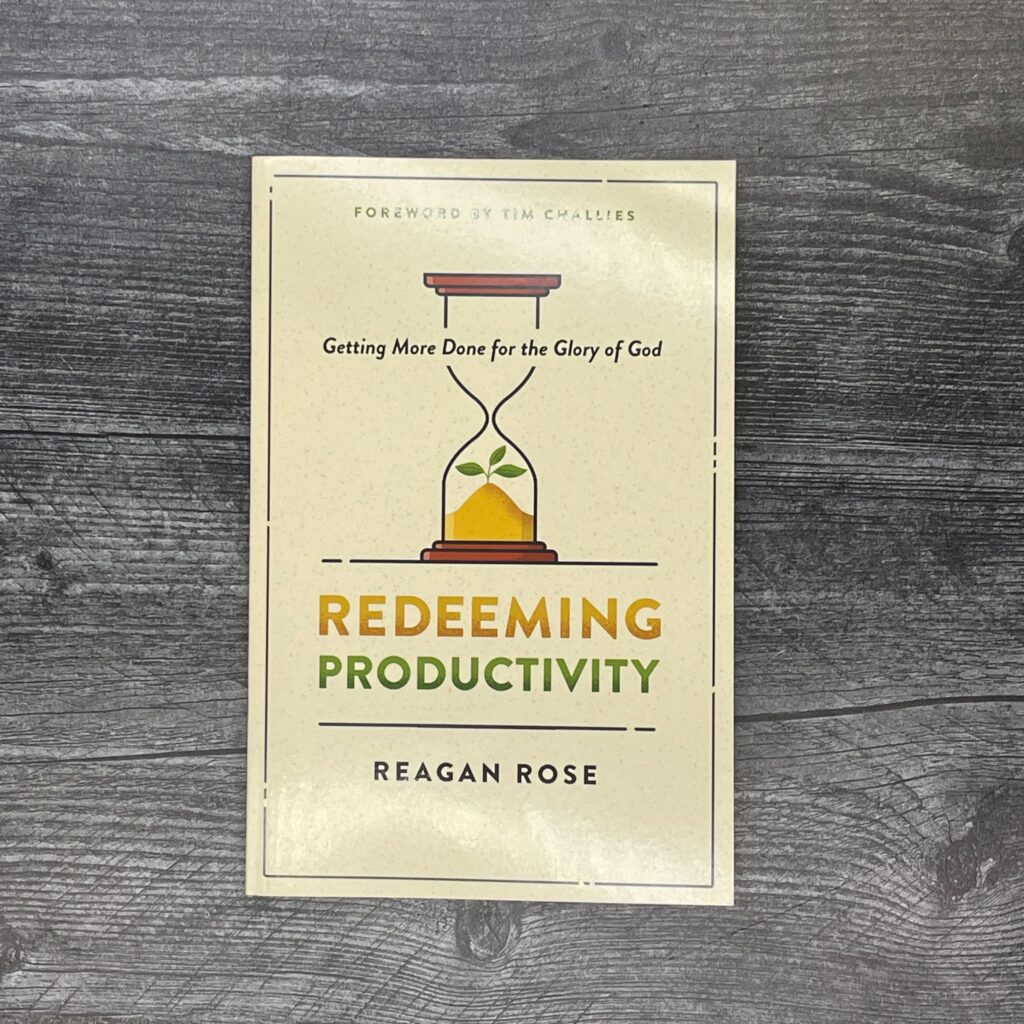Dear steward,
Here’s your weekly roundup of resources and insights to help you on your journey to becoming a more productive Christian.
In Today’s Issue:
- Graduation Gift Idea
- How to Read Biblical Wisdom Literature
- A Christian Goes Down the AI Rabbit Hole
- How to Respond to a Request for Pronouns
- Quote: The Godly Simple Life
Give Your Grad the Gift of God-Honoring Productivity
Graduation season is upon us. And as your beloved seniors step into the next phase of life, consider gifting them with my book, Redeeming Productivity: Getting More Done for the Glory of God. This guide offers a unique blend of practical life strategies and biblical principles to equip readers to navigate their future with purpose and diligence.
It’s more than just a productivity book—it’s a path to personal growth and spiritual development, making it an ideal present for those entering the world of adulthood and independence.
Celebrate their journey, illuminate their path, and point them to Christ with a gift that will help them not just manage their time but steward it for God’s glory.
The best links I found this week
How to Read Wisdom Literature (3 mins)
Max Rogland / Ligonier
This is one of the best summaries of how to read biblical wisdom literature I’ve ever come across. The author gives four instructions for how to read biblical wisdom literature profitably.
- Acknowledge how easy it is to become wise in our own eyes.
- Look for general patterns.
- Observe exceptions to “the rules.”
- Learn how to exercise discernment and dependence on the Lord.
It’s my belief that personal productivity for Christians best fits within the category of wisdom. It’s not a matter of right and wrong, but better and best. And training yourself on the biblical wisdom literature like Proverbs, Job, and Ecclesiastes is one of the best ways to learn how to better prioritize your life around the things that God values and which will be most profitable in your flourishing.
A Christian Goes Down the AI Rabbit Hole (7 mins)
Akos Balogh / The Gospel Coalition Australia
This is a well-informed, level-headed Christian’s thoughts on the potential dangers and promises of the AI revolution we’re experiencing.
Of Akos’s 12 thoughts, these are the ones that most resonated with me.
- 3. Christian View of Humanity Will Impact How We Approach AI and New Technology
- 4. AI Is not Ethically Neutral, but Is Furnished with the Ethics of Its Designers
- 9. The Big Question for Us as Individuals, Workplaces, Families, and as a Society Is: How Can We Use AI Rather than Be Used by AI?
- 11. The Way Ahead Is not to Compete with Machines but to Become More Human
A Response to an Employer’s Request for Pronouns (3 mins)
Amy K. Hall / Stand to Reason
If you work for a large corporation, save this somewhere because you’ll probably need it sooner or later.
This is such a gracious, firm response to a request that’s becoming increasingly common for Christians in secular workplaces.
“I appreciate the goal of mutual respect and creating a welcoming environment for everyone. My desire is to be respectful of everyone. The expectation to display my pronouns asks me to accept a premise that I can’t accept—namely, that my pronouns could be different than he/him. It’s an ontological claim about the nature of reality, and I hold a different view. I’m not asking those that are transgender to accept my view of reality, but I’m being asked to accept theirs.
“I can live and work with respect toward anyone with differing beliefs than my own, including my transgender coworkers. Can I be respected in my beliefs that differ on the nature of gender and identity while affirming the dignity of every person?”
As the author of this piece points out, this response does four things really well:
- Acknowledges the request for pronouns is not a neutral one
- Communicates that the request is contrary to my beliefs
- Affirms the necessity for mutual respect regarding differing beliefs in the workplace
- Affirms the dignity of every human being
🖋Quote of the Week
“A man’s needs are few. The simpler the life, therefore, the better. Indeed only three things are truly necessary in order to make life happy: the blessing of God, the benefit of books, and the benevolence of friends.” – Thomas Chalmers


